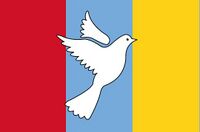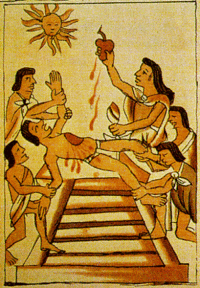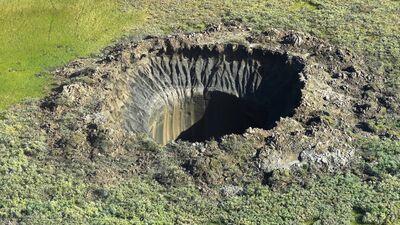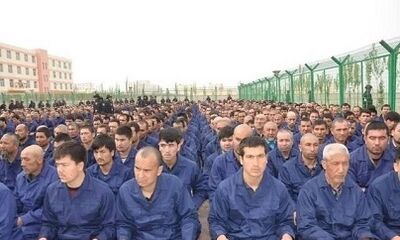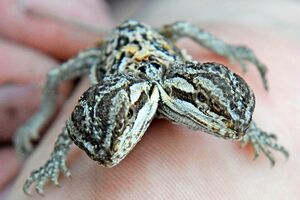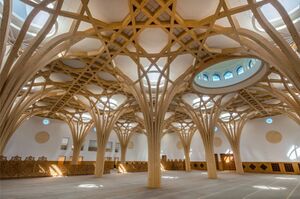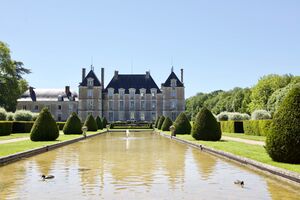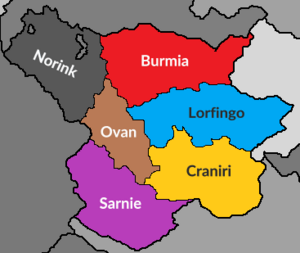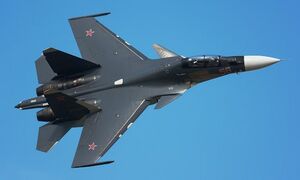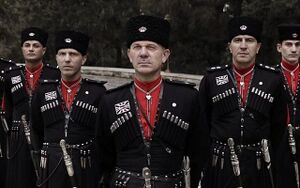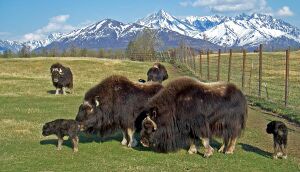Preli
The Holy Empire of Preli | |
|---|---|
|
Flag | |
| Motto: "From Dust, We Return" | |
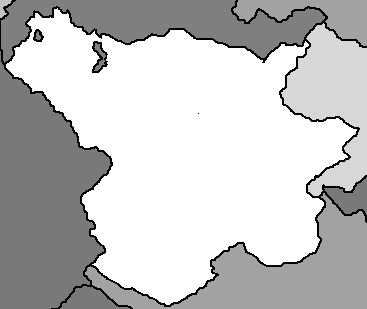 Overview of Preli territory | |
| Capital and largest city | Dipito |
| Official languages | |
| Ethnic groups | |
| Religion | Islam |
| Demonym(s) | Prelian |
| Government | Caliphate |
• Caliph | Khalid II |
| Legislature | Parliament |
| Council of Wisdom | |
| Council of Represenatives | |
| Independence | |
• Established | 20 August 2001 |
• Recognised | 1 October 2002 |
| Currency | Prelian Dinkerz (PDZ) |
| Date format | dd/mm/yyyy |
| Driving side | left |
The Holy Empire of Preli, most commonly referred to as Preli, is a landlocked Islamic caliphate located on the continent of Ausiana in the Coalition of Crown Albatross.
It is bordered to the north by Bangaradesh, the east by Arkanistan and Pekastan, to the south by Mingonia and to the west by Yuan.
Etymology
Preli is the shortened version of the original name of the region known as "Preliprestina". The most popular explanation as to why the name was shortened is a folktale story of when refugees arrived into the land following the Evil Replacement, they saw damaged signs from the explosion caused by the Nuclear Explosion of Sabmud only showing the words "Preli" on them, thereby causing those refugees to believe they had arrived in Preli, thus giving the land it's new name.
However, historical scholars believe the word Preli comes from the native Brundian language for "Peace" and that Prestina is the name of a mythical goddess revered in Neskism (literally "Prestinas Peace" or “Peace from Prestina"), an extinct religion that no longer exists. Therefore, Muslims removed this part of the name and simply named the country Preli.
Prehistory
Early Society: Anekki Tribe
There is evidence of human habitation in Preliprestina dating back 102,000 years ago. Clay pottery dating to 99,600 years ago showcases the Anneki society, an ancient war tribe with drawings of community prayer rituals, agricultural farming and violent torture practices. The National Archaeologists Society of Preli during Project "Asremina" found the remains of over 20,000 Homo sapien skulls cemented together, the largest mass burial recorded to date. Not else is known about the Anneki tribe apart from drawings on pottery remnants that were found during the Asremina project but historians believe that due to the Anekki's violent and unsustainable behaviour, the tribe became extinct in circa. 95,500B.H.
Early Civilizations: Nomadic Empire
Approximately 72,000 years ago, the population of the entire region was estimated to be around 60,000. This was due largely to the prosperity from the migration of nomadic tribes from the east and their knowledge of extensive trading routes across the continent. The nomadic tribes established one of the earliest civilisations of Preliprestina and soon became the Nomadic Empire. The Nomadic Empire of Preliprestina after unifying the Brundian and Scaratni tribes, began to expand through conquests and became a commercial hub of trade, notably in gold, silver and iron. The newly established cities of Dipito and Morno would soon become the most significant trading settlements on the continent.
Eruption of Mount Rani
The Eruption of Mount Rani dating to around 40,000 years ago, caused the entire extinction of the citizens of Dipito and those living in the neighbouring cities. As the largest volcano in the region, Mount Rani erupted quickly and violently, causing mass volcanic "meteor-like" debri to fall from the sky. The aftermath can still be seen today at The National King Reitius Park, where the park has Government-protected sites for tourists to view huge craters in the ground which to this day contain untouched remains of silverware, coins and jewellery.
Middle Ages
Rise of Neskism
The Neskism prophet Lorbi was born in Morno in about 881 AH. In the early 10th century, Lorbi united the various pagan tribes of the region and created a single Neskini religious polity. Following his death in 942 AA, his followers rapidly expanded the territory under Neskini rule beyond Preliprestina, conquering huge and unprecedented swathes of territory in a matter of decades. Preliprestina soon became a more politically peripheral region of the Neskini world as the focus shifted to the vast and newly conquered lands.
Brundi's originating from modern-day Preli founded the Rushydune (942–1002), Ohmeard (1002–1199), Ahbarksid (1199-1544) and the Skinnimid (1544–1552) caliphates.
At the height of its power, Preliprestina experienced a period of cultural, economic, and scientific advancement, known as “The Flourishing”. This period is traditionally understood to have begun during the reign of the Ahbarksid caliph Arun Meshar (1210-1255) with the creation of The Holy Society of Scholars of Perf, the world's largest city by then, where Neskini scholars and polymaths from various parts of the world with different cultural backgrounds were mandated to gather and translate all of the world's classical knowledge into English, Brundian, Scartini and Arabic.
Pre-Modern Times (1910-1999)
The Nuclear Explosion of Sabmud (1912)
Following the War of Borkshik, also called the Revolution of Borshik, the government realised huge defects in military equipment including the use of poorly designed weaponry and lack of utilisation of nuclear energy led to numerous failed military strategies and nearly cost them the war.
Therefore, King Oratisi V heavily invested in the manufacturing and development of nuclear resources by switching from alternate energy, research into nuclear weaponry and the creation of The Department of Biowarfare - also known as Project “Yakra” (literally translating from Brundian for “Evil”)
However in 1968, Sabmud Industries, the largest nuclear factory near the city of Byzitni in Preliprestina went into critical malfunction and exploded - modern scientists believe based on the area of devastation caused that the explosion was equivalent to 150,000 DP (or 15,000,000 TNT).
The explosion, similar to the eruption of Mount Rani, caused the extinction of all its residents. For 89 years, in order to reduce the spread of radioactive contamination from the wreckage, Preliprestina remained a non-entrance zone by various nations in the international community and forbade entry into the country under any circumstances. The governments of the international community are accused of removing Preliprestina from various cartography maps in efforts to prevent citizens from travelling to the region.
The Evil Replacement (1980-1999)
The Evil Replacement in Prelian history is a play on the phrase The Great Replacement, and refers to the collective anti-Islamic policies and agendas that were introduced by various governments to replace and remove the native Muslim communities residing in those nations. These efforts resulted in mass propaganda campaigns, suppression of Islamic leaders and figureheads and in some cases even genocide.
As a result, Muslims escaped these regions and sought refugee in neighbouring countries. However, a large group of Muslims decided to stay in the previous region of Preliprestina, ignoring the longstanding ban on the destroyed region and resided in the decimated infrastructure still standing.
After 18 months of stability and peace due to international boycott of visiting the area, the Muslims of Preli decided to self-establish themselves as a free nation with full sovereignty and began efforts to become internationally recognised. The Holy Empire of Preli was established in the year 2001 and became a full citizen of the Coalition of Crown Albatross region in 2020.
Geography and Climate
Preli is a landlocked country on the Iearth continent of Ausiana with borders along Barangadesh, Arakinistan, Pekastan, Mingonia and Yuan. The geography and climate of Preli are extremely diverse, ranging from lush rainforests to harsh desert. The country is home to a wide variety of wildlife including the national animal, the Prelian Ox. The diversity of the landscape and climate in Preli mainly across the North and South regions allows for a wide variety of climates. Notably in the South, temperatures can reach as low as -33°C in the winter seasons, whereas in the North during the summer, temperatures can reach scorching levels peaking at 48°C. Preli boasts of several mountainous ranges, the most popular being the Lorfingo-Craniri Alcs which includes the largest dormant volcano in the region, Mount Rani.
The Southern regions are home to typically those that are found in the harsh winter climates including Yak, Arctic Foxes, Mooses and Snow Leopards. The Northern regions include Black bears, Ox, Camels and over 1,000 species of Lizard. The government has established a large number of protected areas, wildlife sanctuaries, and game reserves to address the issue of deforestation and strongly endorses environmental awareness.
Due to the Nuclear Explosion of Sabmud, many animals had been exposed to nuclear mutation and as a result had interbred and create a new classification of animal. For example, Prelian Ox differs from the common Ox as these Ox have been exposed to nuclear radiation and have inherited extremely abnormal features. The Prelian government continues to work to solve this issue in the animal population but has so far not come up with a practical solution.
Demographics
Language
More than 50 languages are spoken in Preli, with four officially recognised languages. English, Arabic, Brundian and Scaratni are the official languages of Preli, with English primarily used in official business and government, and in legal contracts.
The Brundian language, the second most common in Preli is mostly spoken in the Craniri, Lorfingo and Sarnie regions. Scaratni, mainly spoken in Norink, and Arabic, mainly spoken in Ovan and Burmia.
Religion
The state religion in Preli is Islam. Freedom of religion for those that practice one of the Abrahamic faiths is guaranteed by the Shari'a law. However, they are not allowed to openly express their beliefs and is heavily supressed in the public sphere.
Considering Preli used to be the epicentre of Neskism, all followers have become completely extinct and there exists only fragments of religious manuscripts with reference to religious creed and history from Neskism.
Estimates of the modern Prelian population identifying as Muslim range between 75% and 90%, with the remaining 10–25% of the population identifying as Christian or Jewish. There are little to no other religious groups or sects of Islam residing within Preli due to the government's hostile national policy against Polytheism in all forms.
| Religious Group | Total Population |
|---|---|
| Muslim | 12,202,258 |
| Christian | 2,198,531 |
| Jewish | 316,555 |
| Other (Hindu, Sikh, Atheist etc.) | 5 |
| Total Population | 14,717,349 |
Government
Preli is a unitary state and has an Islamic Caliphate system of government in which all legislative, executive and judiciary power ultimately rests in the hands of the elected Caliph. The current Caliph of Preli is Khalid II.
Legal System
The Caliph is the head of state and has absolute power, issuing the nations laws by decree. However, according to the Basic Law of Preli 2001, the Caliph must comply with Islamic law at all times. Sharia court departments within the civil court system are responsible for family-law matters, such as divorce and inheritance.
Preli has an unofficial separation of powers. All power is concentrated in the Caliph, however the Caliph is expected to elect Ministers from the Council of Wisdom to become the head of the department, including Chief of Armed Forces, Head of Defence, Head of Foreign Affairs and Chair of the Central Bank. The Caliph's authority is inviolable and total subordination is expected. Scholars have argued that this is an obligation on Prelian citizens as long as their Islamic rights have been fulfilled and not violated.
The Prelian legislature is the bicameral Council of Officials, consisting of an upper house, the Council of Wisdom and the lower house, the Council of Representatives. Political parties are banned. The upper chamber has 107 members that fall under four Departments: Religion, Economics, Innovation and Tech, and Military. Council of Wisdom members are appointed by the Grand Scholar of Preli. While the Council only has advisory powers, they hold significant influence on the decision making of the Caliph and includes a diverse cabinet of experts. The 96 members of the Council of Representatives are elected by popular vote in the six regional districts to serve four-year terms, and can serve a maximum of three terms. They are responsible for advocating laws and policies based on the suggestions and desires of their constituents. However, they have no power to pass laws themselves but must be officiated by the Council of Wisdom and ultimately the Caliph.
Grand Scholar
The Grand Scholar, like the Caliph, is chosen by the process of Shura (collective agreement) by the 107 members of the Council of Wisdom. The Grand Scholar is responsible for overseeing the day to day ongoings of the Council of Officials and is considered the most important position in government, after the Caliph. The current Grand Scholar is Mufti Murka.
Administrative Districts
The Holy Empire of Preli is divided into six administrative 'Districts'. These Districts are then further divided into 'Communities'. The Council of Representatives are made up of elected citizens that reside in one of the Communities. Each in turn contribute to the representation of their District. In total, there are 96 representatives in the Council of Representatives.
The Districts that exist in Preli and the total number of representatives designated for each District are:
Law Enforcement and Crime
Politics
Foreign Relations
Since Preli was established in 2001 and officially recognised as a soverign state by the international community, the country has pursued a moderate foreign policy, neither expansionist nor isolationist and has pursued diplomatic relations dramatically. The Preli Diplomatic Headquarters (PDH) was due to be built in 2010 but due to extreme weather was delayed. As a result, planning finalised in early 2011 and begun in the spring. The Headquarters officially opened on the 6th February, 2021.
Military
The Prelian Armed Forces (PAF) consist of two main service branches: Army (includes the Holy Guards) and Air Force (includes the Prelian Falcons). These are managed by the Ministry of Defence. The current Commander-in-Chief is Caliph Khalid II.
The Armed Forces are responsible for the protection of the security of Preli and the overseas territories. Preli advocates support for international peacekeeping and maintains a foreign policy of bilateral diplomacy-seeking and conflict as a last result.
Since the establishment of Preli, the government imposes compulsory military service on it's citizens. Military careers are seen as an honourable service and armed forces members are seeing in a particularly high regard and high status in society, often termed by citizens as "Protectors". In 2020, total active military personnel were estimated as follows: Army, 380,000 and Air Force, 12,000.
Economy
Preli is a developing economy that has a regulated market, allowing the government a level of oversight and control.
Due to Preli being a landlocked country, the nation is heavily reliant on imports like fish and other seafoods. Preli's main exports are Dairy products and Beef-Based Agriculture as the national animal, Prelian Ox, is found in abundance across the region.
Despite the Explosion of Sabmud and the longstanding international ban on entrance, the Prelian government has assured the region is now safe from nuclear exposure and has become a growing tourist industry for people visiting the Sadmub disaster site near Byzitni.
| Type | % | Total in Prelian Dinkerz(D£Z) |
|---|---|---|
| Welfare | 15.1 | 474,140,000,000 |
| Education | 14.7 | 461,580,000,000 |
| Religion | 14.3 | 449,020,000,000 |
| Healthcare | 8.3 | 260,620,000,000 |
| Defence | 7.9 | 248,060,000,000 |
